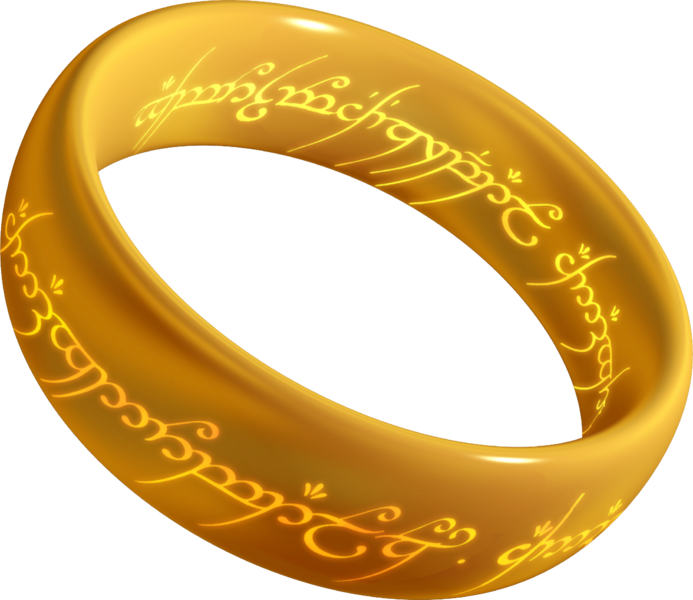The Lord of the Rings trilogy by Tolkein is an amazing work Yes, it is fantasy. It may not be for everyone. But for some, at least, it contains powerful truths. It is impossible to put even the main highlights of such a lengthy work into a single blog entry, so I will only use a few that strike me as particularly pithy. I’m quoting from the films, because more have seen them than read the books, I suspect.
When Saruman (a chief wizard) tries to convince Gandalf( a main character, also a wizard) to ally himself with Sauron (the personification of evil), so that the wizards can share in the power of ruling Middle Earth via the Rings, Gandalf replies:
There is only one Lord of the Ring, only one who can bend it to his will. And he does not share power.
If you ever wanted a warning about dabbling in the occult, that is it. You just think you can use it; it uses you. This is one of the central themes of LOTR. Gandalf will not even touch the One Ring, handling it with tongs or covering it with a cloth.
When Frodo, rightly frightened by its power, offers the ring to Gandalf, he replies:
Don’t… tempt me Frodo! I dare not take it. Not even to keep it safe. Understand, Frodo. I would use this ring from a desire to do good… But through me, it would wield a power too great and terrible to imagine.
Note that good intentions are no protection. The temptation to use the power of the One Ring comes to one character after another. Resisting that temptation takes a toll, but that is as nothing compared to price paid by those who yield to the temptation, even for a moment.
This is perhaps the central theme in the LOTR, and that would be a great virtue in and of itself. But there are many other, subsidiary themes.
Early on, Frodo says it’s a pity that his uncle Bilbo did not kill the creature Gollum, the one being most debased by, and obssessed with, the One Ring.
Gandalf replies:
Many live that deserve death, and some that die deserve life. Can you give it to them? be not to eager to deal out death in judgement. Even the very wise cannot see all ends.
I could go on and on about the marvelous insights, but I will conclude with this exchange between Frodo, who has accepted the challenge of returning the One Ring to the volcano where it can be destroyed, and his dear friend, Sam, who is closer than a brother. Roughly 2/3 through the entire journey, the evil influence of the Ring, and the trials of the journey, have nearly brought Frodo to despair. Here’s the exchange:
Frodo: I can’t do this, Sam.
Sam: I know. It’s all wrong. By rights we shouldn’t even be here. But we are. It’s like in the great stories, Mr. Frodo. The ones that really mattered. Full of darkness and danger, they were. And sometimes you didn’t want to know the end. Because how could the end be happy? How could the world go back to the way it was when so much bad had happened? But in the end, it’s only a passing thing, this shadow. Even darkness must pass. A new day will come. And when the sun shines it will shine out the clearer. Those were the stories that stayed with you. That meant something, even if you were too small to understand why. But I think, Mr. Frodo, I do understand. I know now. Folk in those stories had lots of chances of turning back, only they didn’t. They kept going. Because they were holding on to something.
Frodo: What are we holding onto, Sam?
Sam: That there’s some good in this world, Mr. Frodo… and it’s worth fighting for.
Again and again this work passes my test: Does it communicate truth?
If you have seen this scene, it probably brought a tear to your eye. It did mine. Are there things that I don’t care for in the story? Absolutely. Would I change them? Would I have written them differently? Absolutely. But I will not dwell on them here. Or anywhere, for that matter. Why?
I’ll take that up next time, concerning one of the most misinterpreted passages of scripture.










